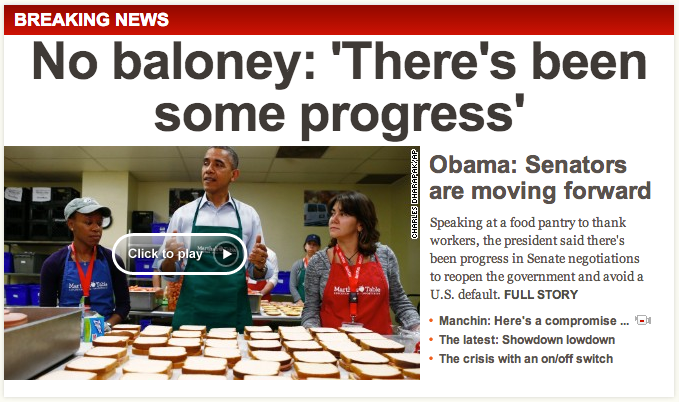Thus, the works of a theoretical, or real, cartel isn't a central bank and fiat money, the works of that cartel are the opportunities to abuse the system.
I actually agree with you on most of the post (some successful central banks), but here is the crux of the matter. The global banks that hold the concentrated power to finance governments, concentrate the power of the media through ownership, influence public policy through policy think tanks, fund campaigns for those elected to office etc... are in a position that they CREATE the opportunities to abuse the system.
The Fed was created by them, you had the speculative boom and bust of the 1920's (in which they got out of the market prior, took out competitor banks that were taking away business from New York, and bought off assets at cents to the dollar).
The deregulation of banks, the neoclassical economic movement culminating with Reagonomics, the reliance of debt for consumption... these are all opportunities CREATED to favor these institutions. All one has to do is follow the money throughout history.
Snowman Prophet of Doom said:
Wars are decided upon my the government, not the bankers. They will finance said wars no matter WHAT they do. This is reverse vampires-level stuff you're putting out there.
Would you at least agree that there are potential economic benefits to governments that go to war? You have blatant examples of wars in the 21st century being carried out to specifically benefit corporate interests (Iraq, Syria, etc), and you still question if politicians answer to interest groups when conducting policy? Governments have the audacity to lie (or obstruct inquiries) about false flag attacks since back in the Spanish-American war... only to go to war. This is only conspiracy, because the true definition of the word is "a secret plan by a group to do something unlawful or harmful." The sad part, is that it is not truly secret as time goes on, yet the population ignores it.
Snowman Prophet of Doom said:
Assuming that this is true, that they "drafted" the Fed rather than simply deciding on how best to advise the government: If you're a government creating a large central bank, who would you want to give input on how it ought to be operated? I might go for the rich bankers that have copious experience, but that's just me.
Then I ask you... would the international bankers have the best national interest of the US in creating it, or are they in the business of attaining profits?
P.S. The government was not seeking advice. The US had already three failed attempts at central banks, but a concerted media effort by Warburg, and via the then "General Manager of the Nation", Senator Nelson Aldrich, the legislation passed. Not coincidentally, his daughter was married to John D. Rockefeller Jr. Maybe he was also seeking input then.
You are in luck, however, because this theory is a myth and does not hold water. It may well be the case that bond sales divert savings away from other private investments, but it is not the case that “loanable funds” are impacted. This is because banks do not loan funds. They create the money they loan from thin air. In short, banks do not lend reserves. They loan first (against their capital) and then, if necessary, seek reserves to meet legal requirements after the fact. (Some countries have 0 reserve requirements.) In fact, this is related to the reason why the central bank does not control the money supply and why money is endogenously determined by demand. If the demand for money rises and banks meet that demand through loans, they can create an aggregate shortfall in reserves. When that happens, the Federal Reserve has no choice but to add reserves to the system in order to maintain its target interest rate and ensure smooth check clearing. In short, diverting savings away from bonds will not result in more “loanable funds” since that is demand determined and not reserve constrained.
Quick correction (we've had this discussion before): Banks DO loan funds, in the way that they convert existing assets between risk-free and risky assets to increase their net interest margin, while managing the asset-liability duration mismatch. They go to the discount window to meet short-term cash flow obligations (usually over-night), and the real restraint is the accounting for the capital adequacy ratios that are enforced by the regulatory bodies (and indicate the health--therefore confidence--in banks). Different assets (loans, MBSs, cash, securities) are assigned risk ratings, and determine the capital ratios to Tier 1, Tier 2, i.e. capital. The essence of the Fed buying $40 billion in MBSs each month is to convert these "risky" assets into excess reserves (reflected as risk-free cash in the banks), so that the now improved capital adequacy ratios allow for more loans to be created. Europe is doing the same, through which sovereign (junk) bonds are considered risk-free assetes (risk rating of 0), so that capital ratios are improved, and banks can lend. There too the banks have only increased financial asset holdings, and reduced actual lending, The failure of the policy is that banks rather put the money to work in financial assets (supported by the same QE), to increase profits. So as you can see, the Fed does influence the supply of money via reserves, we DO have a fractional reserve system, however we can safely agree that this policy is shit when it comes to creating jobs.

